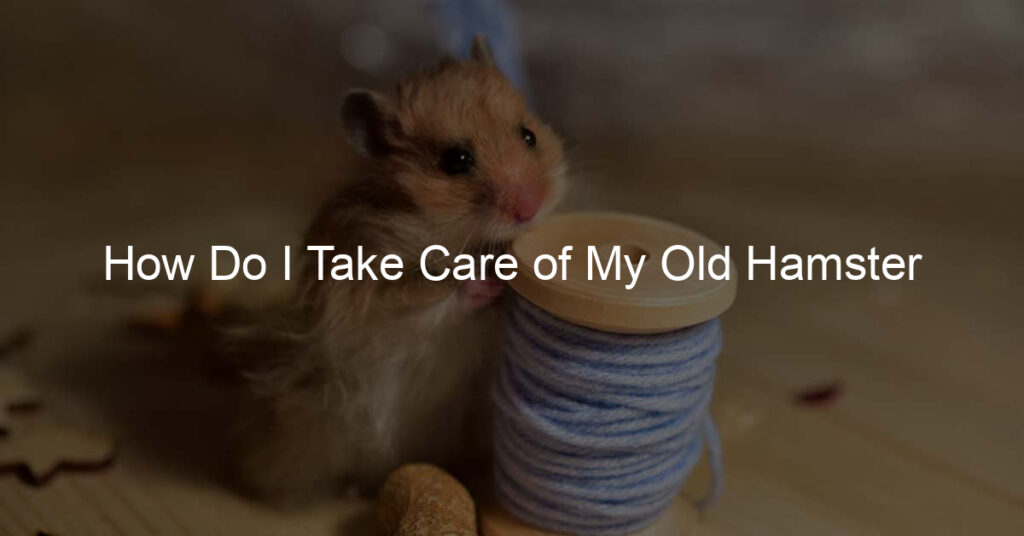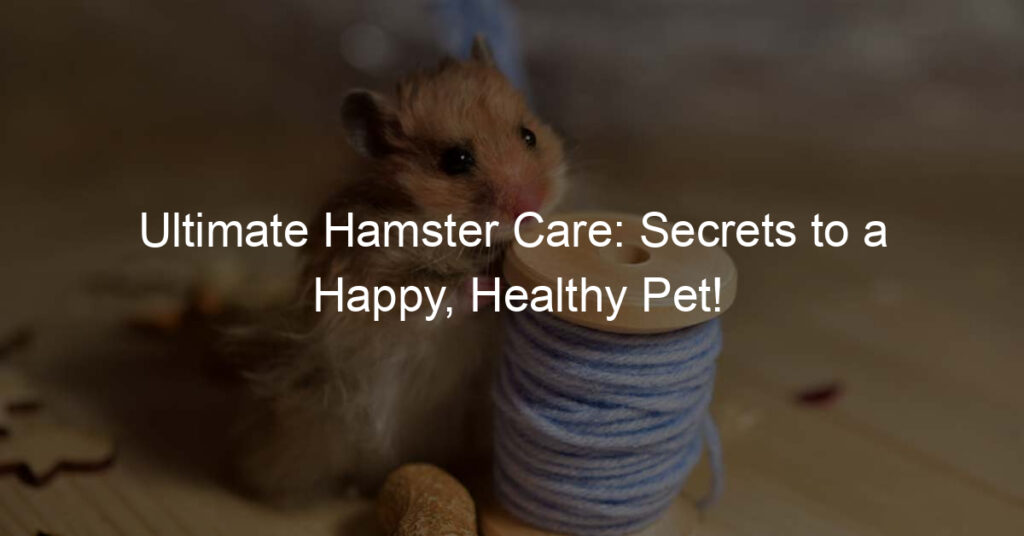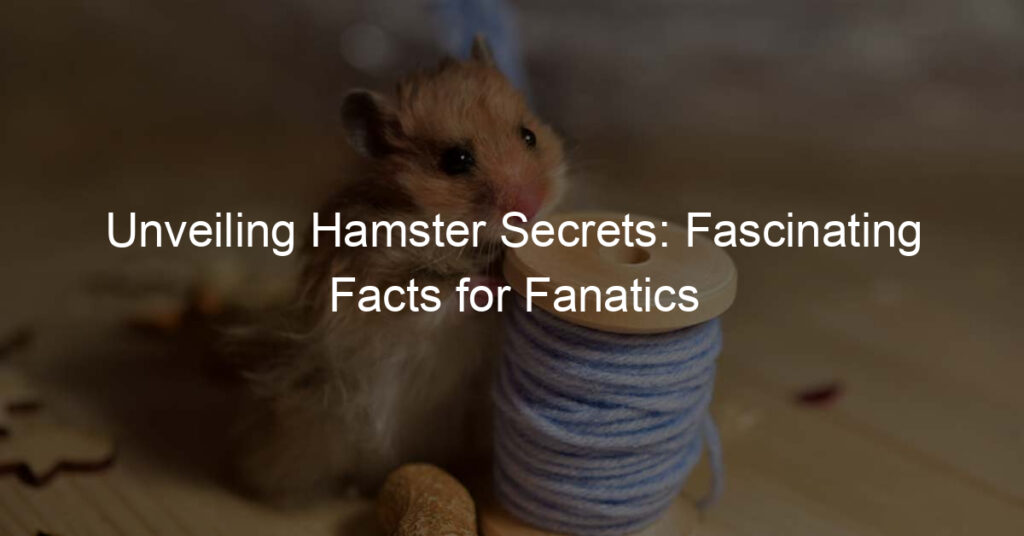If you’re like most hamster owners, you want to do everything you can to make sure your furry friend has a long and happy life. But what happens when your hamster starts to get older? How do you take care of an elderly hamster?
Here are a few things to keep in mind as your hamster enters his golden years:
1. When your hamster gets old, it will start to slow down and sleep more.
2. Their fur will also start to thin out and turn gray.
3. You can make their life more comfortable by giving them a soft bed to sleep in and keeping them warm with a blanket or heating pad.
4. It’s important to continue feeding them a healthy diet and giving them fresh water every day.
5. You may also want to give them some supplements to help boost their immune system and keep them healthy.
6. Be sure to handle your old hamster gently, as they are fragile at this stage in their life.
How do you keep an old hamster healthy?
Keeping an old hamster healthy requires regular check-ups at the vet and daily care at home. Make sure your hamster’s cage is clean, with fresh bedding and a wheel that works smoothly. Offer them consistent nutrition, like specially designed pellet food for hamsters, supplemented with fresh fruits and veggies for variety. As your senior hamster ages, they may since slower reflexes and energy levels, so avoid any changes to their environment that might startle them.
Additionally, be sure to continue providing lots of TLC by spending quality time with your furry friend each day – this could include taking your hamster out of its cage to explore or teaching it tricks! With adequate attention and daily care, you can ensure that your aging hamster remains in optimal health throughout its golden years!
What do you feed an older hamster?
When it comes to feeding an older hamster, you should always err on the side of caution. It’s important to make sure that your hamster is still getting enough nutrition and essential vitamins and minerals, but without overfeeding which can lead to health issues. For adult hamsters, a diet composed of 70% hay or grass-based pellets, 15% fresh vegetables, 10% healthy treats such as commercial chews and omega-fatty snacks, and 5% seeds should be just right.
It’s best to avoid processed foods like sweet fruits and sugary snacks and stick with crunchy vegetables and greens that offer necessary fiber as well as natural sugars. Make sure your older hamster has access to plenty of clean water at all times – if given the chance they’ll gladly take advantage!
What are the signs of old age in hamsters?
As any pet owner knows, the aging process can seem swifter than we would like. Hamsters can live to be 3-4 years of age in captivity and some of the signs that indicate your furry friend is getting older are decreased physical activity and changes in fur color. They may also become less interested in their environment and sleep more of the day, as is common with seniors.
Other subtle signs may include matted fur (due to grooming infrequency), trouble with mobility on account of stiff joints, or even forgetfulness when it comes to hiding food stores. Of course, if you suspect your pet hamster is approaching its sunset years, be sure to visit a vet for an assessment and guidance on how best to care for them over the coming months.
What do hamsters do when they get old?
As hamsters age, it’s important to monitor their behavior and make any necessary adjustments for a comfortable life. Older hamsters may find themselves sleeping more, as well as having slower reflexes and responses. They might not be able to stay up late like the younger hamsters, instead prefer daytime naps and earlier bedtimes.
Exercise is also essential to keep them healthy and fit, so provide plenty of playtimes – like exploration outside of the cage – or activities like running on a wheel as dementia can set in if they don’t stay active. You’ll also need to adjust the diet since older ones will require slightly different caloric needs than their younger counterparts. All of these things will help your elderly hamster live out his or her golden years in relative comfort.
Closing Thoughts About How Do I Take Care of My Old Hamster?
In conclusion, when hamsters get older, you should make sure to pay special attention to their health and diet. Even though they may seem less active, it is important to give them the nutrients they need to stay healthy. You should monitor their eating habits closely and watch out for the signs of old age, such as lethargy or hair loss. Remember that your friendly hamster will only stay with you for so long, so cherish every moment and treat them right!
But of course, not all elderly hamsters have the same needs—it’s up to you as their caregiver to learn about your pet and offer them the best care as they get older. Just like any other pet, if you provide adequate nutrition and love for an aging hamster, your furry bundle of joy will remain happy and healthy in its golden years.








